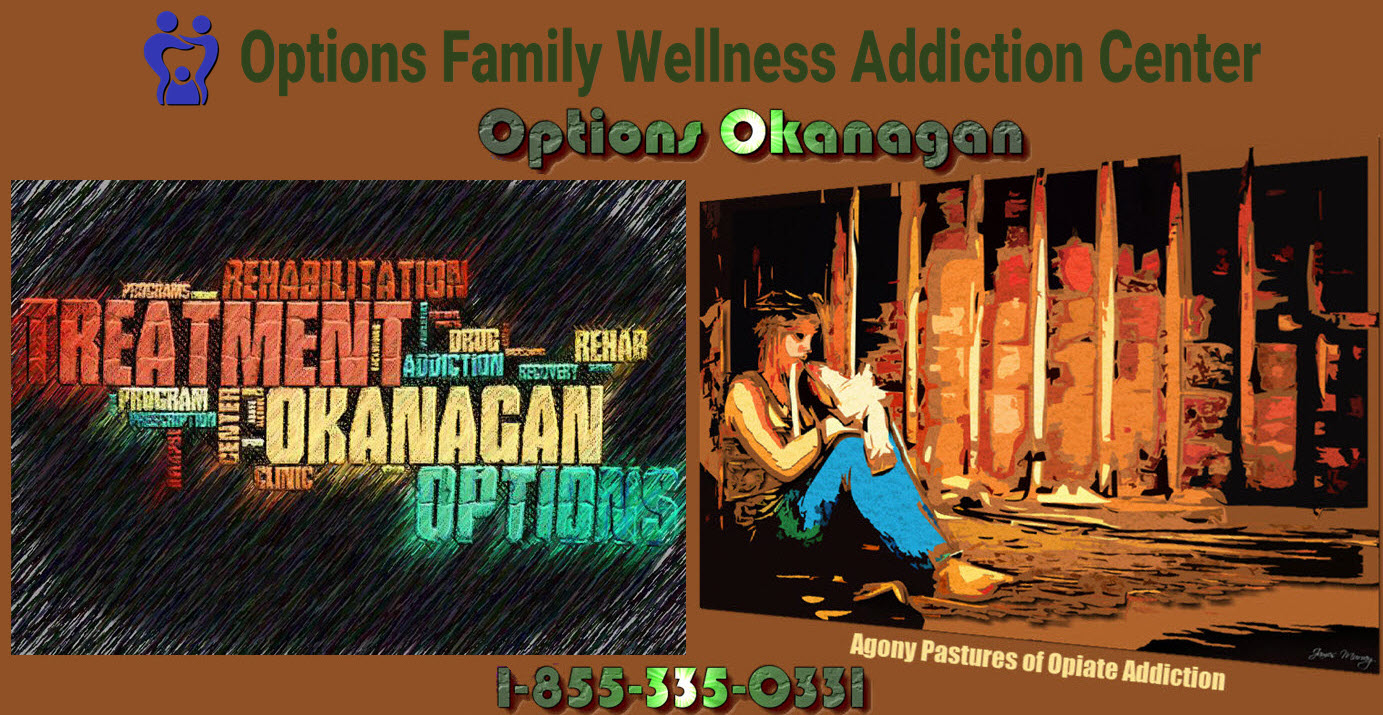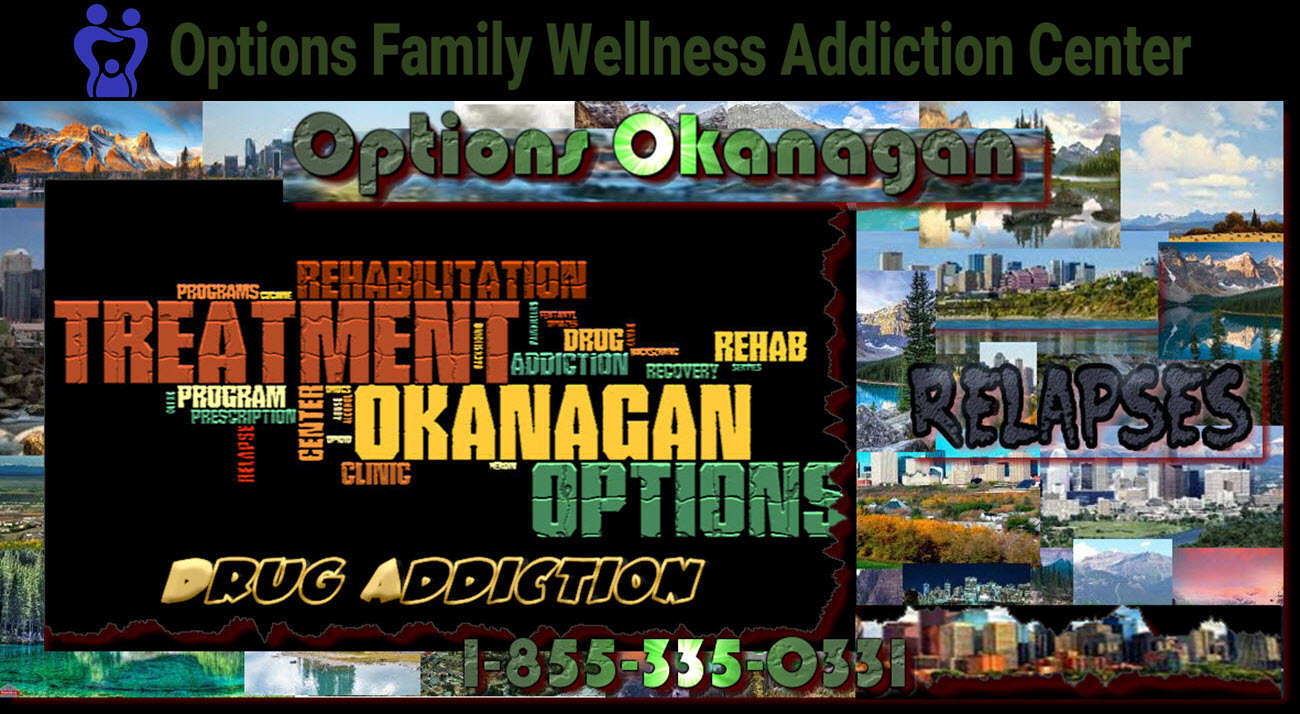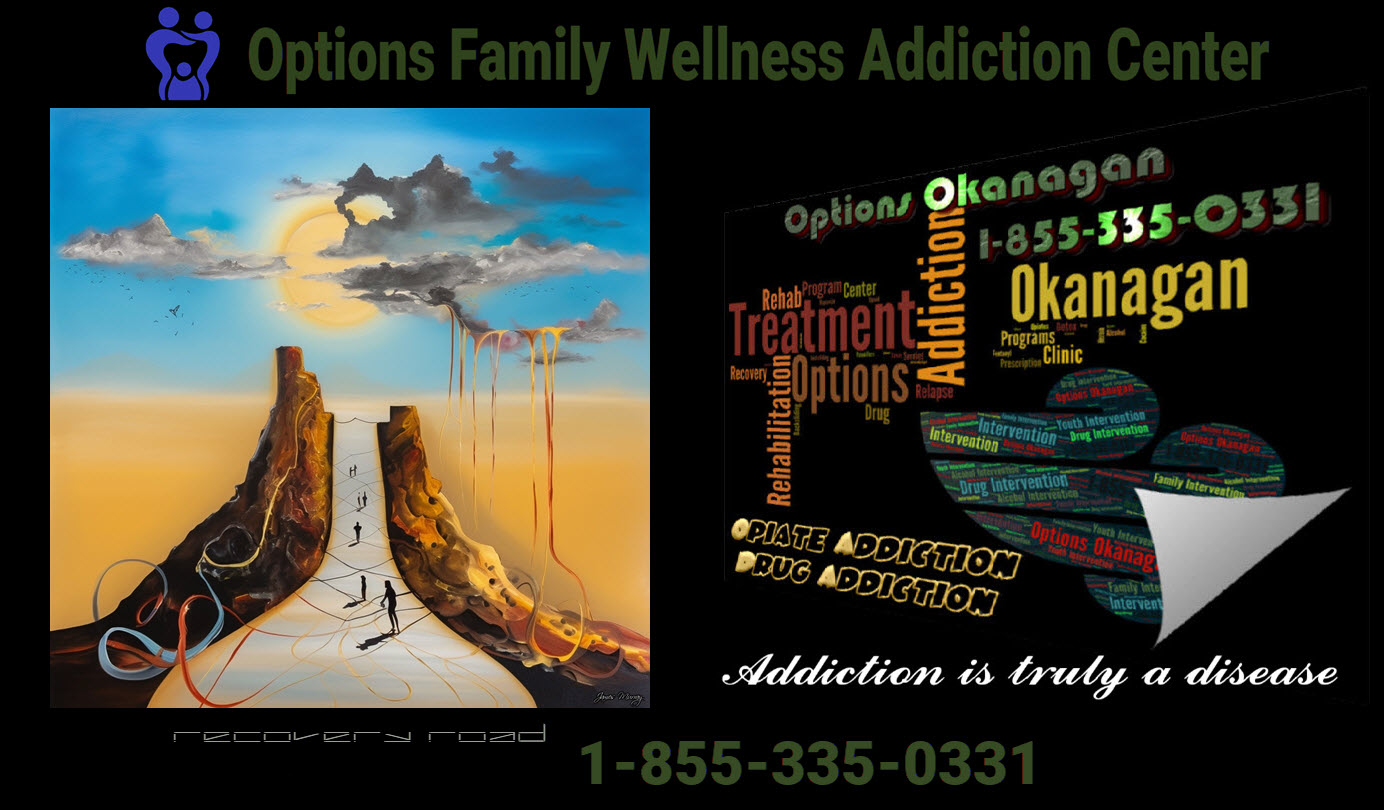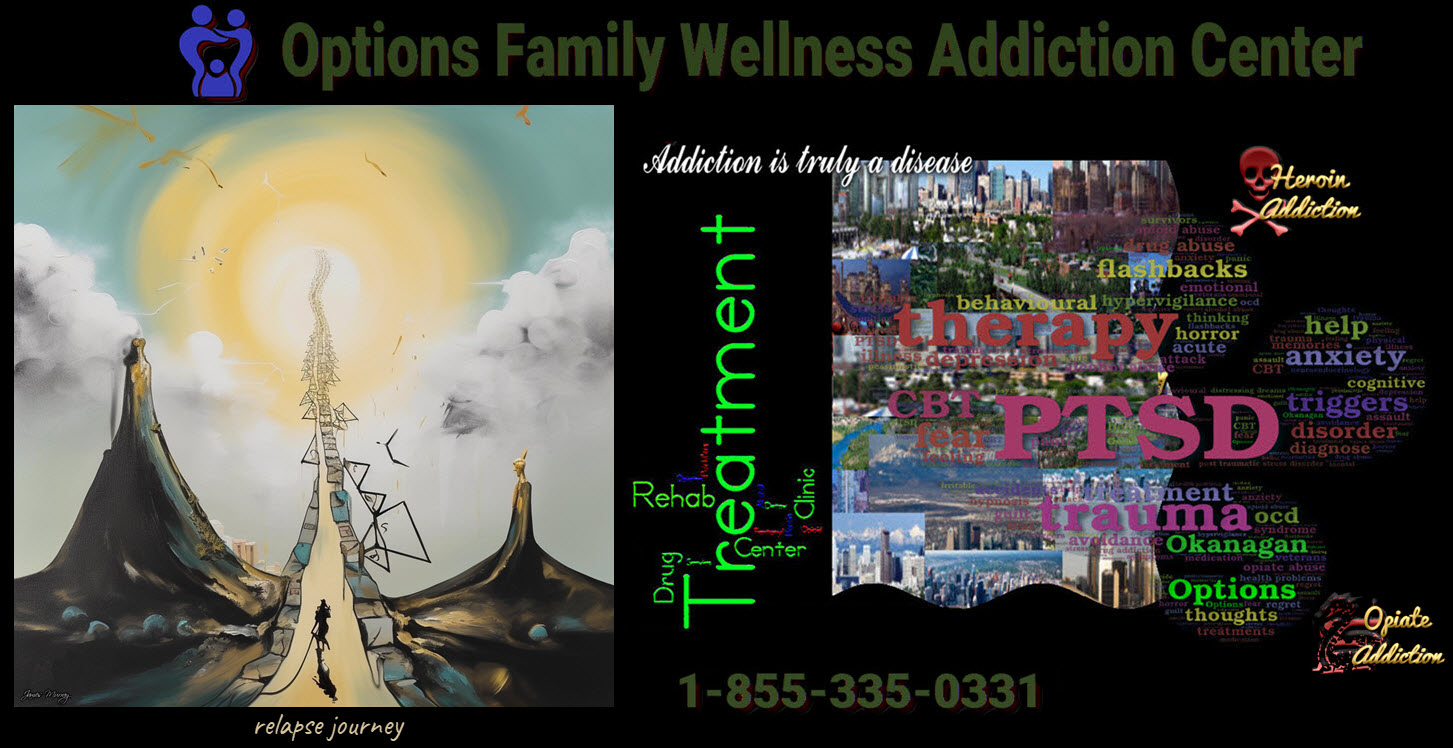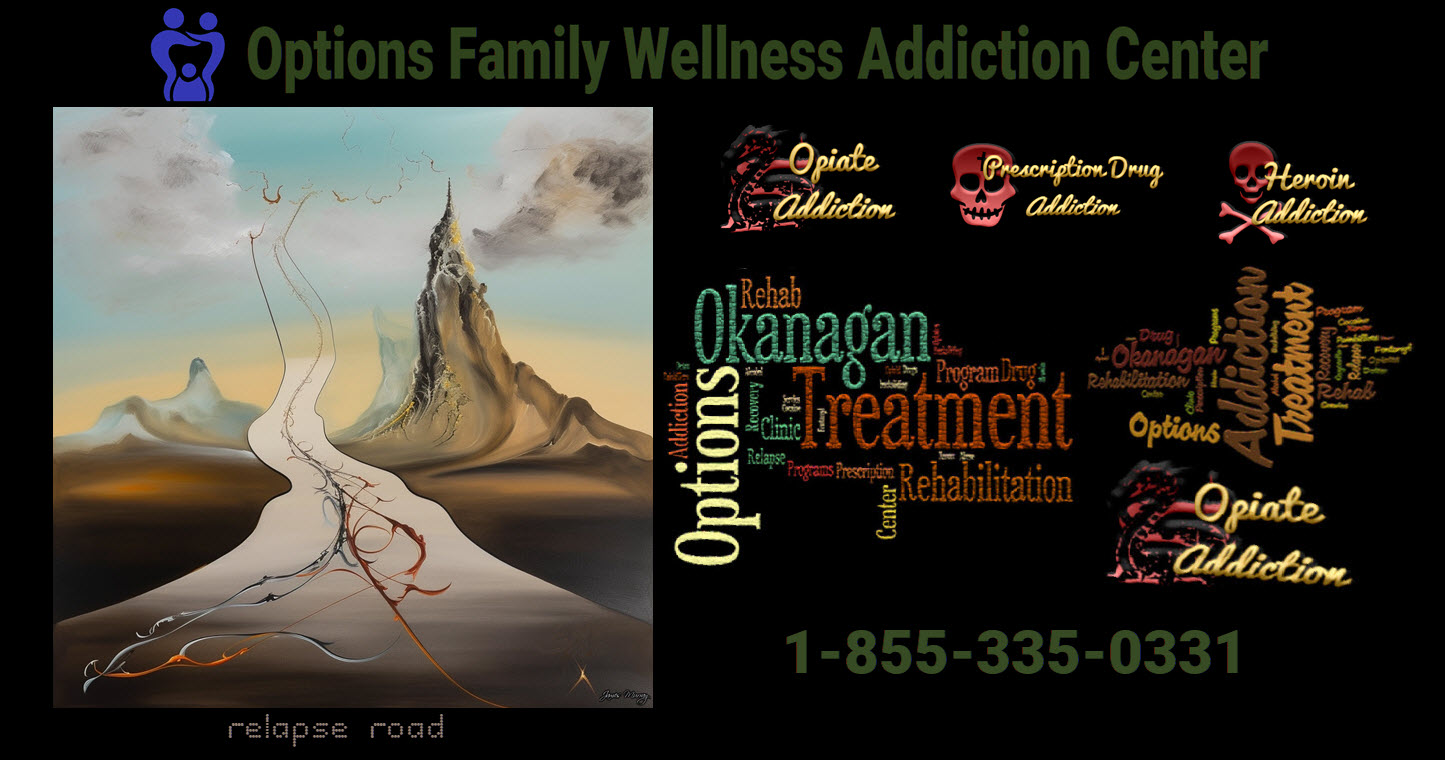Drug addiction treatment programs for recovering addicts in British Columbia and Alberta – Options Family Wellness Addiction Center in Kelowna, British Columbia treating drug and alcohol addiction and recovery.
Drug Treatment Center In BC
Relapse is a common occurrence in addiction recovery, but it doesn’t mean you have to give up. With the right support and mindset, you can get back on track and continue your journey to sobriety. In this post, we’ll explore the causes of relapse and offer tips on how to recover from one.
The way back from a relapse addiction
Relapsing is a setback, but it’s not the end of your recovery journey. It’s important to remember that relapse is a normal part of addiction recovery, and many people experience it. Don’t beat yourself up over it – instead, focus on what you can do to get back on track.
Why do so many individuals relapse?
Relapse can be triggered by a variety of factors, including stress, trauma, and negative emotions. Identifying your triggers is an important step in preventing future relapses. Here are some common triggers and examples of how to cope with them:
Stress: Try practicing mindfulness meditation, taking a relaxing bath, or doing some gentle yoga to relieve stress.
Trauma: Consider seeking therapy or counseling to work through past traumas and develop coping skills.
Negative emotions: Engage in activities that make you happy, like spending time with loved ones, listening to music, or pursuing a hobby.
What to do after a relapse
After a relapse, it’s important to take action to prevent future ones. Here are some steps you can take:
Avoid triggers: Stay away from people, places, and situations that could trigger a relapse.
Develop coping strategies: Practice healthy ways to cope with stress, emotions, and cravings, such as exercise, journaling, or talking to a friend.
Seek support: Reach out to your family, friends, or a support group for help and accountability.
Rely on your family members and friends again
It’s important to have a strong support network to help you through the ups and downs of recovery. Here are some ways your family and friends can support you:
Offer encouragement: Your loved ones can provide emotional support and encouragement to help you stay motivated.
Help with accountability: Ask a trusted friend or family member to check in with you regularly and hold you accountable for your recovery goals.
Join you in healthy activities: Encourage your loved ones to engage in healthy activities with you, like going for a walk, cooking a healthy meal, or trying a new hobby.
Consider professional treatment
If you’re struggling to recover on your own, professional treatment can be a game-changer. Here are some options to consider:
Inpatient rehab: Inpatient rehab programs provide 24/7 support and care in a controlled environment, and can be helpful for severe addiction or co-occurring mental health issues.
Outpatient rehab: Outpatient rehab programs offer more flexibility and allow you to continue working or going to school while receiving treatment.
Therapy or counseling: Individual or group therapy can help you work through underlying issues and develop coping skills for recovery.
Here are some book recommendations related to drug and alcohol addiction recovery and relapse prevention:
“The Recovering: Intoxication and Its Aftermath” by Leslie Jamison – This book is a memoir that explores addiction and recovery through the author’s personal experiences and research.
“Unbroken Brain: A Revolutionary New Way of Understanding Addiction” by Maia Szalavitz – In this book, the author challenges traditional views of addiction and offers a new perspective on recovery and relapse prevention.
“The Addiction Recovery Skills Workbook: Changing Addictive Behaviors Using CBT, Mindfulness, and Motivational Interviewing Techniques” by Suzette Glasner-Edwards – This workbook provides practical tools and strategies for managing addiction and preventing relapse.
“The Big Book of Alcoholics Anonymous” – This classic text is a guide to the principles and practices of Alcoholics Anonymous and is a valuable resource for those in recovery from alcohol addiction.
“Recovery: Freedom from Our Addictions” by Russell Brand – In this memoir, the author shares his personal experiences with addiction and offers insights into recovery and the importance of spiritual and emotional growth.
Here are some potential FAQs related to the information provided:
Q: What is the Options Family Wellness Addiction Center in Kelowna, British Columbia?
A: The Options Family Wellness Addiction Center is a treatment center in Kelowna, British Columbia that specializes in treating drug and alcohol addiction and recovery. They offer a unique and distinctive opiate drug and alcohol treatment program for men and women seeking recovery from addiction.
Q: What are some common triggers for drug or alcohol relapse?
A: Some common triggers for drug or alcohol relapse include stress, trauma, and negative emotions. Identifying these triggers is an important step in preventing future relapses.
Q: What should someone do after a drug or alcohol relapse?
A: After a relapse, it’s important to take action to prevent future ones. This might include avoiding triggers, developing coping strategies, and seeking support from family, friends, or a professional treatment center.
Q: What are some examples of coping strategies for drug or alcohol addiction recovery?
A: Examples of coping strategies for drug or alcohol addiction recovery might include mindfulness meditation, therapy or counseling, healthy activities like exercise or hobbies, and seeking support from loved ones or a support group.
Q: What are some professional treatment options for drug or alcohol addiction recovery?
A: Some professional treatment options for drug or alcohol addiction recovery might include inpatient rehab, outpatient rehab, or therapy or counseling, depending on the individual’s needs and situation. The Options Opiate and Alcohol Treatment Center in Kelowna is one such professional treatment center that offers a unique program for men and women seeking recovery from addiction.
Options Okanagan Opiate and Alcohol Treatment Center in Kelowna, British Columbia offer a unique and distinctive Opiate Drug and Alcohol treatment program for men and women seeking recovery from addiction. Our treatment center provides airport pickup and has served clients from all over Alberta and even other provinces in Canada. Don’t give up hope – with the right support and resources, you can overcome addiction and achieve lasting sobriety.
Options Opiate and Alcohol Treatment Center in Kelowna, British Columbia – Men and Women are recovering and healing from Alcohol and Drug Abuse at our treatment center here in the Okanagan right now.
Numerous clients come to us from Vancouver, Calgary, and Edmonton and other locations in Alberta and even other provinces for Opiate addiction treatment, heroin drug treatment, many other drug and alcohol addictions for rehabilitation because of the uniqueness of our treatment center.
Options Family Wellness Addiction Center
551 Sherrydale Crescent, Kelowna, British Columbia, V1V 2E6
Toll-Free Phone Number: 1-855-335-0331

